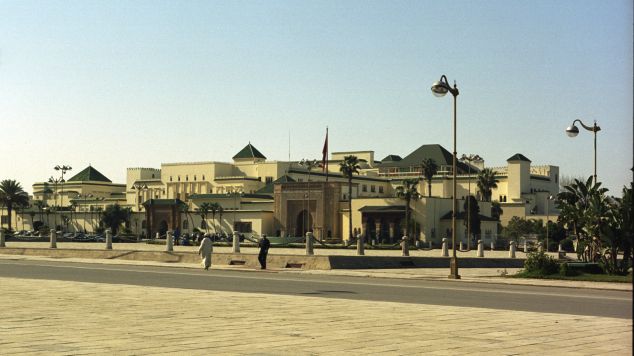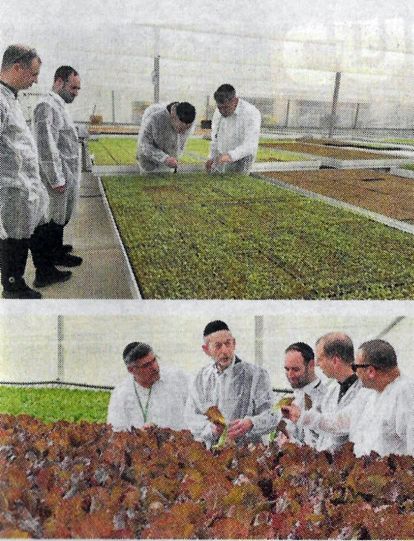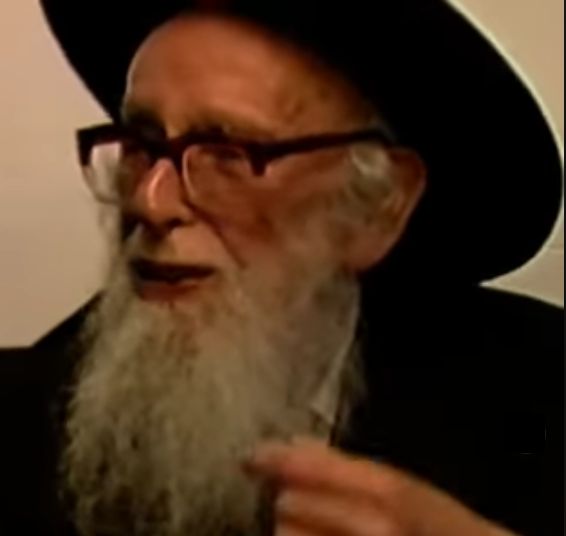  |
|
| |||||
This Google Custom Search looks only in this website. The Israeli Peace Agreement with Morocco is Very Successful
"Morocco is very interested in promoting peace with Israel and association with Jews. A veritable revolution is taking place and the change is deep and quantitative. The curriculum in schools has been revised and the Holocaust is being taught, as well as information about Jews. They are actually changing their textbooks. This change in the government schooling expresses a new approach which promotes an altogether different connection."
Malcolm Hoenline, Director of the Association of Presidents of Major Jewish Organizations in America, expressed the following ideas to us in a broad interview which he gave us, where he related to developing relations between Israel and Arab countries. When he was asked to note the names of these countries who are actually partners for peace, he chose to highlight Morocco as a fine and prime example.
From the field to the plate. Deputy Minister of Chareidi Development in the Office of the Prime and Minister of Transportation, Rabbi Uri Maklev, made a special tour last week of the Research Center for Technological Development in Beit Chilkiya. He visited the largest such research site in the whole Middle East, spreading over 30 dunam and located in the fields of the chareidi settlement, Beit Chilkiya, in the regional district of Nachal Sorek. He examined agricultural developments of bug-free produce grown on hydroponic beds with no contact with the ground.
Rabbi Maklev arrived with accompaniment of the Department director, Mr. Ro'i Assaf and members of the local district, including local kashrus supervisors. He visited the labs and testing tables and their produce. Not only do these vegetable grow severed from the ground, they do not contain earth in their beds. They thrive in water pipes with special nutrients, allowing for a sterile atmosphere assuring no insect infestation.
This series of articles about HaRav Shlomo Zalman Auerbach zt"l was originally published in 1995 (5755), soon after the petiroh.
Part 5
"They Loved Truth and Peace..."
"His Torah was a Torah of peace, for the Torah has come for the purpose of increasing peace in the world — peace between individuals and peace within the community, peace over minor matters and peace concerning momentous issues. Throughout his life he was careful to weigh every single issue in a scales which had peace on one side and truth on the other, seeing to it that one never outweighed and disturbed the other chas vesholom, to the slightest degree. He carefully maintained the balance between truth and peace, seeing to it that upholding the truth never shattered the peace, and that preservation of peace never involved any compromise of the truth." (From the hesped delivered by his son HaRav Avrohom Dov Auerbach at the levaya.)
Mediation is a task which falls to almost every practicing rav. Although over the years HaRav Shlomo Zalman resisted much pressure that was brought to bear upon him to take up various rabbinic positions, his objections were to the title and the honor inherent in the station for which he felt unsuited, not to any aspect of the work. Indeed, outside his fixed sedorim for learning and teaching, he was as fully involved in advising those who turned to him, as well as avoiding or resolving disputes between them, as any other rav.
In this area, he combined his brilliance of mind with his warmth of manner and his respect for his fellow Jew to defuse a myriad of difficult situations without veering an iota from halacha.
For example, when one of the residents of Sha'arei Chesed passed away on Rosh Hashanah, the levaya was held on the following day, the second day of Rosh Hashanah. One of those attending suddenly approached the bier and in the tone customarily used for hespedim began to speak: "Although today is Rosh Hashanah and according to the din no eulogies are said, however..."
HaRav Shlomo Zalman immediately said quietly to the man, "You are right, there are no hespedim today but I want to give you the honor of saying Kaddish before the entire assembly."
Rain and Kinneret Watch by Dei'ah Vedibur
Staff
Our weekly report of the rain and the level of the Kineret -
Winter, 5783.
* * *
Outstanding Articles From Our Archives
"For Mordechai Became Exceedingly Great"
Excerpted by B. Re'eim
R' Mordechai was invited to attend a bris taking place in France, after the war. R' Mordechai set out on a Friday together with another Jew. They grew so immersed in divrei Torah that they became confused about their destination and got off the train at the wrong stop.
"I'm afraid we're lost," sighed the companion.
Nonplussed, R' Mordechai exclaimed, "Look at what a beautiful world Hashem has created! How lovely are these trees and everything all around us. Do you know, a Jew never gets lost," he offered as a side comment, and continued to praise the scenery.
A German student approached them and told them that they must get on the next train in order to reach their destination. After they had boarded it, R' Mordechai turned to his travel mate and said, "It is written by Hagar, `And she went and she strayed' (Bereishis 21:14). Rashi comments there that she returned to the old ways of her father's house. How does Rashi know this? Chazal learn this from a gezeira shava, since it says [when Yaakov is discussing with his mother his going to Yitzchok disguised as Eisov], `And I shall seem in his eyes as a deceiver [one who misleads]'" (Bereishis 27:12).
R' Mordechai continued, "A Jew never loses his way or makes a mistake. Wherever he happens to be, he understands that he was brought there by Heavenly design. It is Hashem's will that he be there at that time, in that place. There is no mistake about that. What then, is losing one's way? If a person goes to a place where Hashem would prefer he didn't go, a place that is against the will of Hashem. He is sidetracked, misled along the wrong path. If the Torah says that Hagar strayed, it must mean that she strayed from the right, G-dly path, and reverted to her idolatry."
by Rabbi Yosef Cowen
Yehoshua ben Gamla, a Cohen Godol during the second Temple period, initiated a quiet revolution. Observing that significant numbers of children did not have fathers to teach them Torah, he enacted a takonoh that teaching facilities be established in every town. The maintenance of this system became a communal obligation. Thus, public education has been part of Jewish life for the past 21 centuries. For this innovation, the Sages crowned him with the following accolade: "May this man be remembered for the good, for if not for him the Torah would have been forgotten from Israel" (Bovo Basra 21a).
Throughout history, numerous threats to the continuity of the Jewish people were encountered. The Sages state that the Divine promise never to forsake Klal Yisroel manifests itself in the appearance of outstanding individuals to meet these challenges.(Megilla 11a) Soroh Schenirer, the towering visionary who founded the Bais Yaakov movement, is undoubtedly an example of this phenomenon. She catalyzed a revolution which changed the face of the Jewish world. About her, it might be said: May this woman be remembered for the good, for if not for her, the Torah would have been forgotten from Israel.
*
Today the Bais Yaakov system is taken for granted. To understand what these schools have wrought, we must be aware of the crisis which faced the Jewish world in the period prior to their foundation.
During the nineteenth century, the Haskalah wreaked havoc amongst Western European Jewry. Moreover, it is estimated that up to a quarter of a million of Jews converted to Christianity and hundreds of thousands joined the ranks of Reform. Torah-observant Jews were - or at least felt like - an embattled minority in Western Europe.
By the end of the nineteenth century, the tide of Haskalah and assimilation began to seep into Eastern Europe. In the twentieth century, the situation worsened. The First World War caused large scale upheaval and dislocation in Jewish communities, while new ideologies - secular Zionism, Socialism and Communism -attracted many, particularly Jewish youth. The young were naturally drawn to these movements because of various Jewish concerns such as the traditional Jewish love of Eretz Yisroel, compassion for others and concern for social justice. The trend of assimilation was such, that by the outbreak of The Second World War, the Orthodox accounted for only a half of the Jewish population of Eastern Europe. (Dr. Yakov Robinson "The Holocaust of European Jewry," p. 198)
|
|||||




.jpg)


